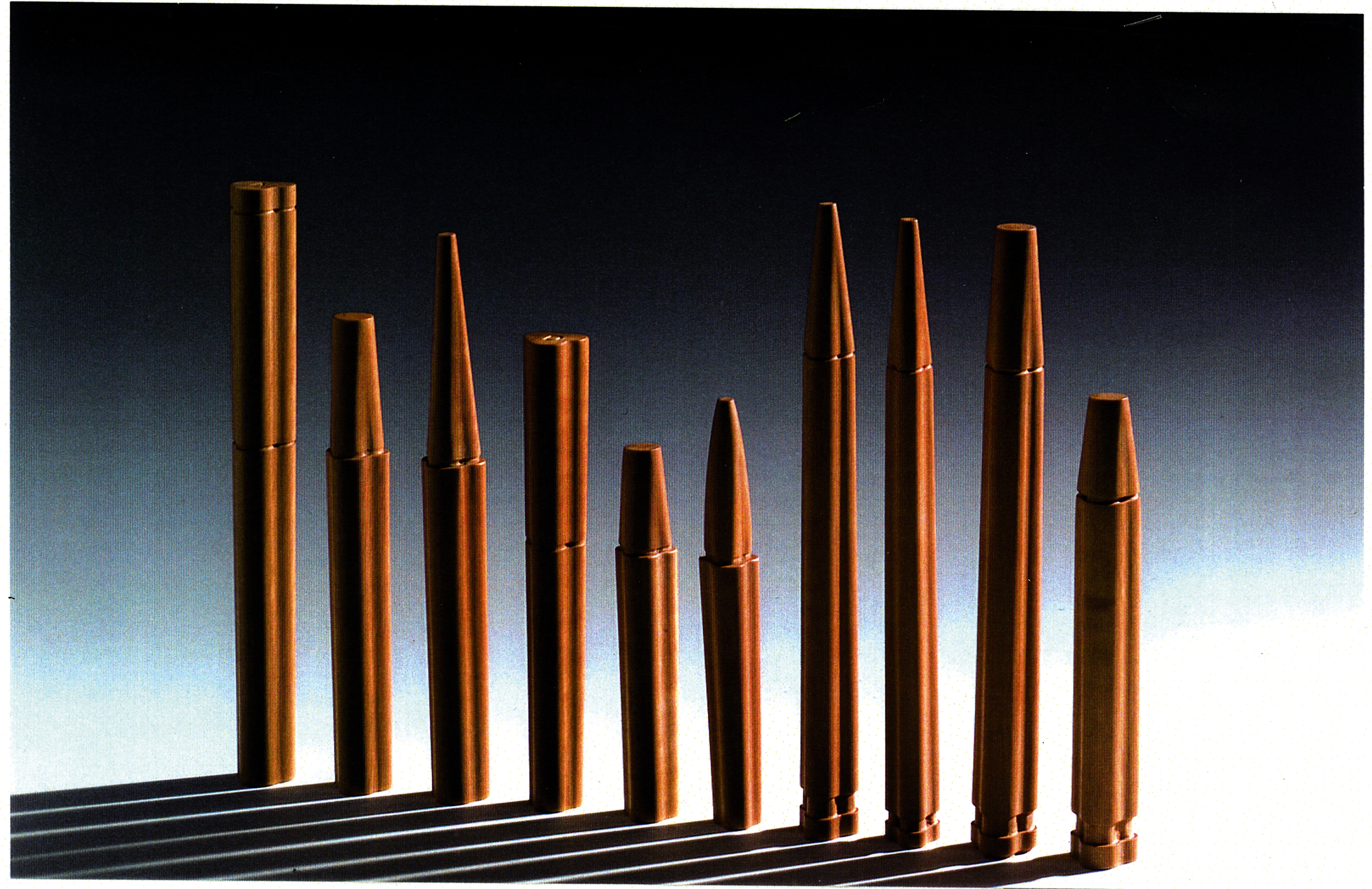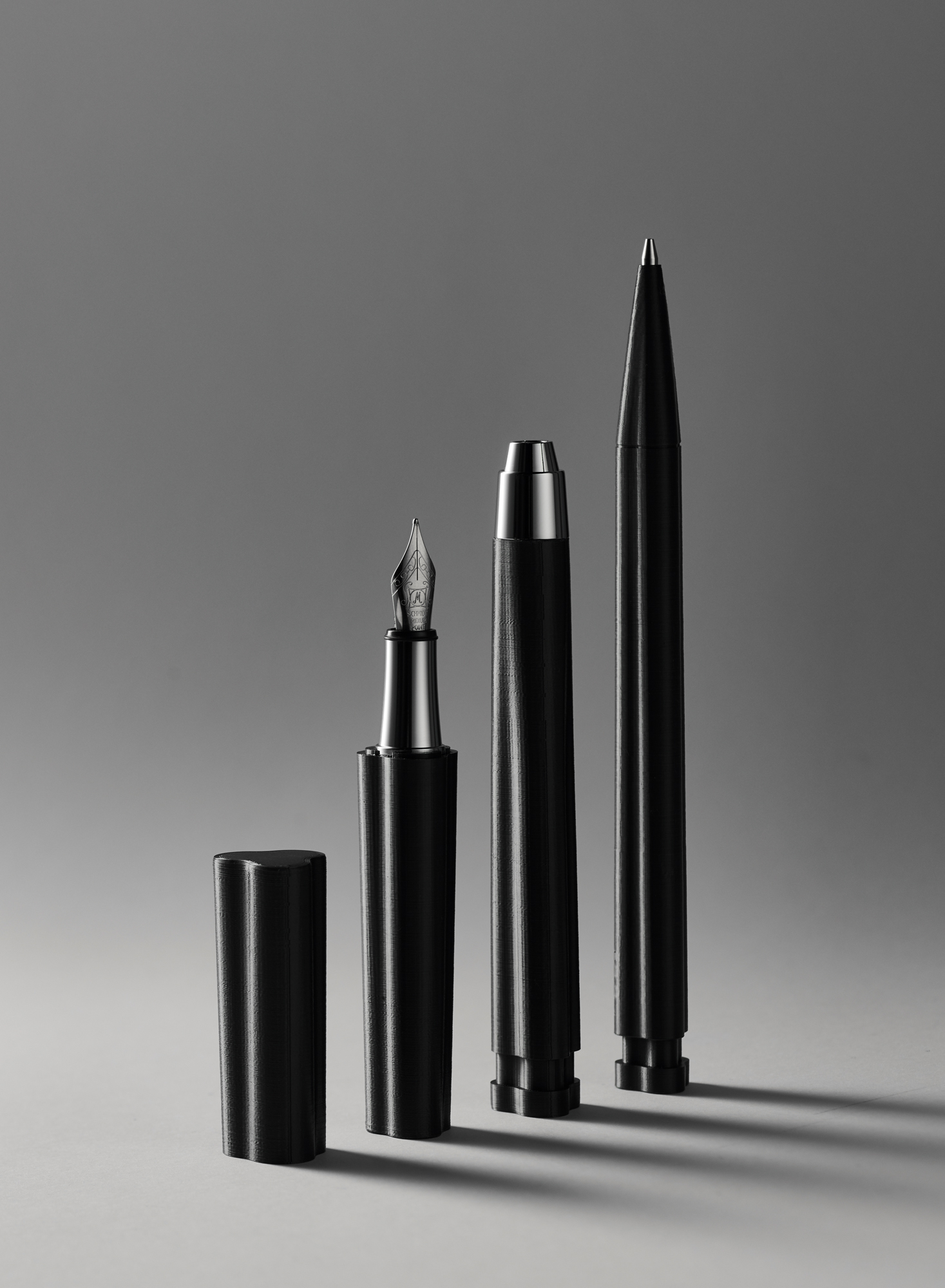Achille Castiglioni pens combine ergonomics and good design
The two-decades-old Achille Castiglioni product is finally put into production by a group of Bologna-based entrepreneurs

Receive our daily digest of inspiration, escapism and design stories from around the world direct to your inbox.
You are now subscribed
Your newsletter sign-up was successful
Want to add more newsletters?

Daily (Mon-Sun)
Daily Digest
Sign up for global news and reviews, a Wallpaper* take on architecture, design, art & culture, fashion & beauty, travel, tech, watches & jewellery and more.

Monthly, coming soon
The Rundown
A design-minded take on the world of style from Wallpaper* fashion features editor Jack Moss, from global runway shows to insider news and emerging trends.

Monthly, coming soon
The Design File
A closer look at the people and places shaping design, from inspiring interiors to exceptional products, in an expert edit by Wallpaper* global design director Hugo Macdonald.
Pens designed by Achille Castiglioni and his close collaborator, architect Gianfranco Cavaglià in 2001, part of the writing set ‘Cento3’, have now been put into production for the first time.
Castiglioni’s daughter Giovanna (who also heads the foundation preserving the designer’s legacy) found the original prototypes hidden behind a mirror in her father’s Milan studio: a series of wooden pencils that Achille Castiglioni and Cavaglià had created in collaboration with wood workshop Bottega Ghianda in 2001. As designers, Cavaglià recalls, he and Castiglioni had always had a desire to create their own working tools, in their case, writing instruments. During the project’s conception, the two designers debated the pens’ exact shapes, and the final design is moulded to accommodate a three-finger grip, to reinforce the connection between hand and mind. The design has the added benefit of not rolling off a table easily.

From left, the newly-edited ‘Cento3’ fountain pen, art pencil and mechanical pencil by Ego.M. Photography: Neil Godwin at Future Studios for Wallpaper*
The prototypes had been left untouched for nearly two decades, as it was difficult at the time to find a suitable manufacturing collaborator to produce the unusual shape at an affordable price. Searching for a suitable manufacturer, Castiglioni’s heirs joined forces with a team of Bologna-based designers and entrepreneurs to launch Ego.M, a collaborative brand that would bring these design icons to life and produce them for the first time.
The new versions are 3D-printed in black graphene, and are available in three formats: a multifunctional ‘matitone’ (a thick pencil referencing the tools used on a building site), a classic pocket fountain pen with stainless steel tip, and a mechanical pencil. The technique faithfully reproduces the original forms, and the material is light to hold (an aspect, Cavaglià recalls, that was important for Castiglioni). The final result is clean and precise, an essential writing kit that brings the design commitment of one of Italy’s most celebrated creative minds into the future.
INFORMATION
‘Cento3’ pens by Achille Castiglioni and Gianfranco Cavaglià, from 50 euros, available from egoundesign.com.
Receive our daily digest of inspiration, escapism and design stories from around the world direct to your inbox.
Rosa Bertoli was born in Udine, Italy, and now lives in London. Since 2014, she has been the Design Editor of Wallpaper*, where she oversees design content for the print and online editions, as well as special editorial projects. Through her role at Wallpaper*, she has written extensively about all areas of design. Rosa has been speaker and moderator for various design talks and conferences including London Craft Week, Maison & Objet, The Italian Cultural Institute (London), Clippings, Zaha Hadid Design, Kartell and Frieze Art Fair. Rosa has been on judging panels for the Chart Architecture Award, the Dutch Design Awards and the DesignGuild Marks. She has written for numerous English and Italian language publications, and worked as a content and communication consultant for fashion and design brands.